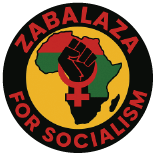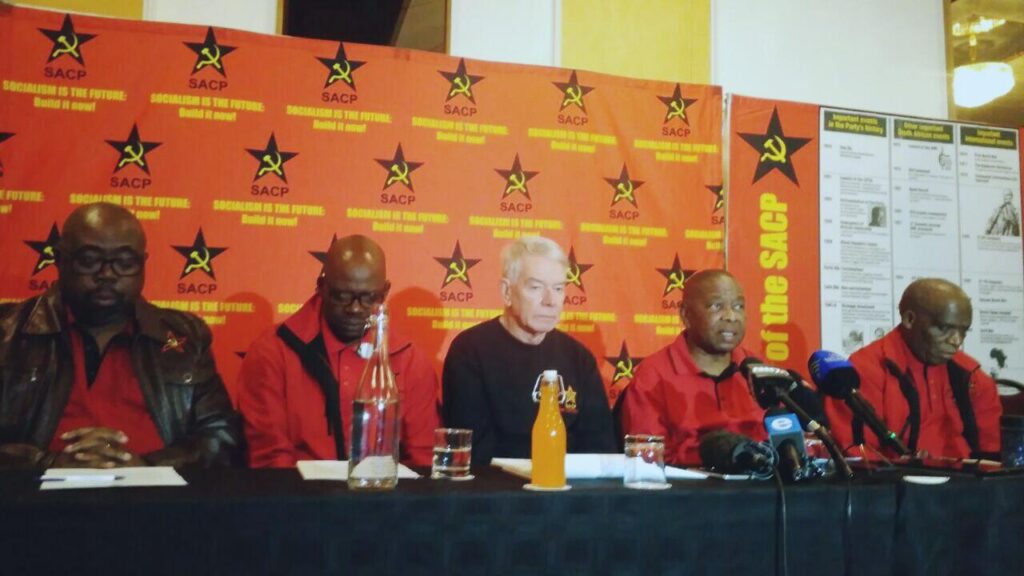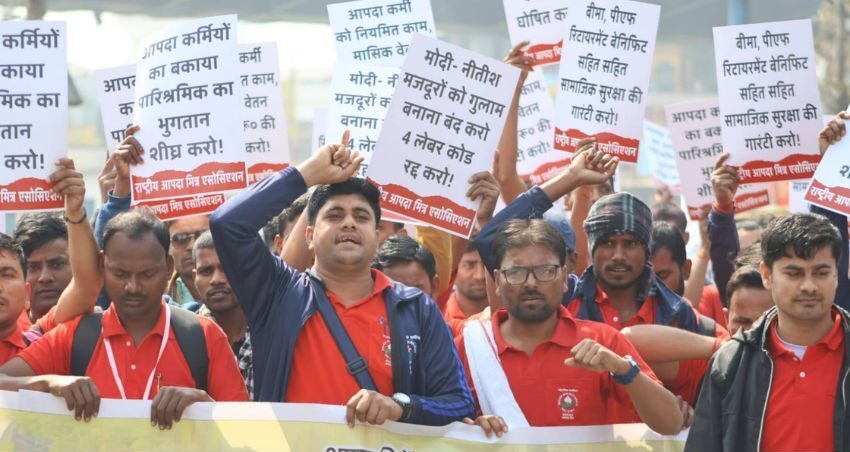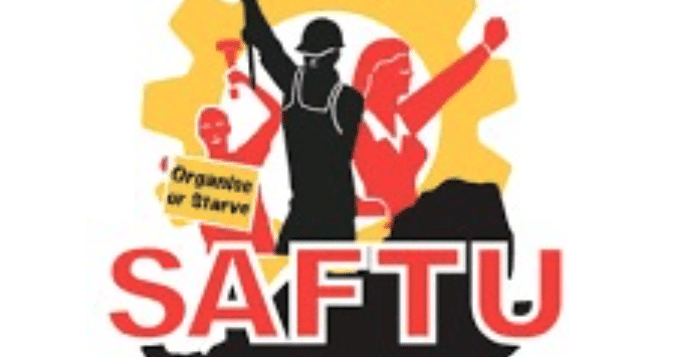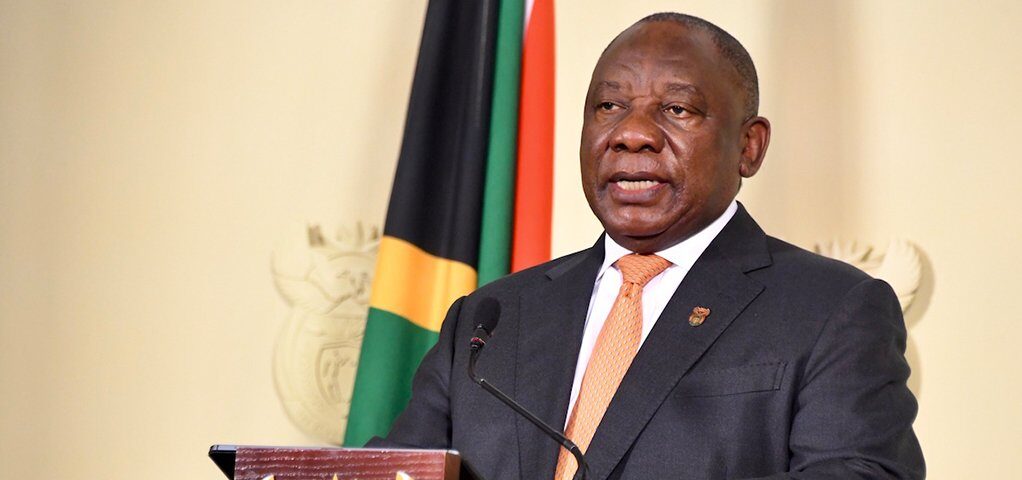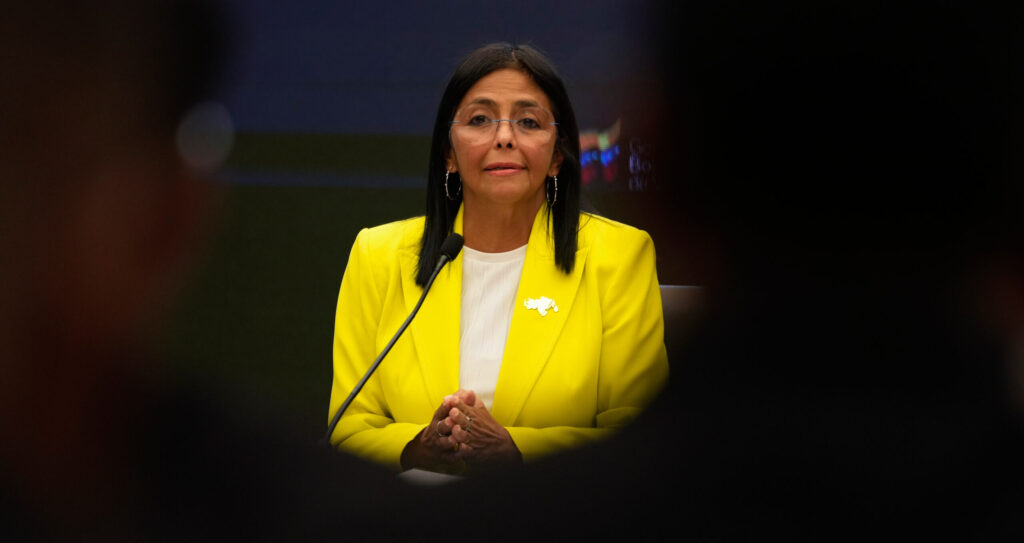Introduction
Dennis Davis and Karl Klare argue that transformative constitutionalism has not been fully pursued by the African National Congress (ANC). As the governing party between 1994 and 2024, it was in poll position to use the powers of state to give effect to and operationalise the imaginary that the 1996 Constitution presents. This imaginary, they argue, provided for a thorough transformation of the state that would have overturned the legacies of colonialism and apartheid and paved the way for the actualisation of the full human potential of particularly black people, women, poor people, and sexual minorities. Rather than it being, as anti-constitutionalist detractors would have it, a failure of the Constitution to address the urgent colonial and apartheid legacies impacting these groups, Davis and Klare contend that it is a failure of politics that has left specifically economic relations unchanged. I concur with this argument, based on my own previous analysis (Van der Westhuizen et al. 2023; Van der Westhuizen 2007). This failure of politics becomes apparent with the necessary historicisation —that is, when the actual conditions and relevant political and ideological factors and actions informing the transition to democracy are studied. Such historicisation makes a nonsense of claims that South Africa’s constitutional democracy amounts to mere neo-apartheid (see for example Mpofu-Walsh 2021). I would add to the diagnosis of a failure of politics the failure of political imagination, due in part to what can be described as post-socialist attachments. The concept of ‘post-socialism’ is derived from analyses of the crisis-ridden incorporation of the former Soviet Bloc into the capitalist world order, and is used here with reference to the legacies of ANC exposure to Soviet political practices during the exile period (Engel and Saunders 2023; Kalb 2019). While exiled members of the ANC and its ally the South African Community Party (SACP) generally possessed little knowledge about Soviet economic planning and institutions (Freund 2013, p. 520), they did return to South Africa with political ideas influenced more by party-driven centralisation of political control than by democracy — therefore influenced by an imaginary of so-called ‘revolutionary discipline’ that Stephen Ellis (2012, p. 298) describes as involving ‘contempt for real politics’.
In this responding article, I bring Davis and Klare’s socio-legal studies argument into conversation with insights from my interdisciplinary vantage point of sociology and political studies. What follows, is firstly an overview of the ANC’s economic policy evolution in the 1980s and 1990s, as traceable in various policy statements and documents. I will then turn to the post-socialist entanglements of the dominant African nationalist bloc, in the form of ideological adherences to the SACP’s ‘two-stage theory’ of historical change, and the related aspects of the ‘national democratic revolution’ and ‘colonialism of a special type’. How this imaginary gave succour across ANC factions, as clashing power elites, will be shown – and how it stunted the political imagination by inculcating a culture that is at best ambivalent to democracy in its substantive version, as envisaged by the 1996 Constitution, and at worst authoritarian. These dynamics, fuelled by ethno-racial populism, have found a vehicle in the first political party to advance as a distinct policy platform the relinquishing of the Constitution: former president Jacob Zuma’s uMkhonto weSizwe Party (MK Party), which had splintered off from the ANC. As such, unfolding events in South Africa resonate with the current global imperilment of democracy as a political imaginary (Van der Westhuizen et al. 2023). It will be noted that I use the phrase ‘democratic constitutionalism’ rather than ‘transformative constitutionalism’. While the latter concept has been productive in thinking through what the Constitution should achieve, I wish to emphasise the democratic dimension of this sought-after achievement, rather than ‘transformation’ which as a term has arguably become too closely associated with the ANC’s limited version of change.
Elite Economics Hollowing out Politics
Davis and Klare point out that in adopting neoliberal capitalist policy in the form of the Growth, Employment and Redistribution (GEAR) plan and its successors, the ANC government in fact violated the Constitution. This is because, as they put it, in ‘South Africa, the realisation of constitutional rights and economic policy are inextricably linked’. I agree, as the historical record shows that the ANC’s pursuit of neoliberal economics was a conscious policy decision counter to the 1996 Constitution’s obligations.
While the ANC’s so-called ‘radical economic transformation’ faction promoted the idea that shadowy figures of ‘white monopoly capital’ were behind implementation of neoliberal capitalist policy, tracing the history of economic policy development in the ANC tells a different story. The ANC emerged from exile with vague economic policy ideas that shifted into ideological double-speak that continues to bedevil the party. It paved the way for a left-posturing kleptocratic group to arise. Davis and Klare pinpoint 1992 as the year in which the ANC abandoned social democratic principles for neoliberal ones. I trace this shift even earlier and map the ANC’s embrace of neoliberalism with a series of policy statements.Footnote 1 In a communiqué released jointly with the Transvaal and Natal Indian Congresses, the ANC in 1988 emphasised that it was ‘not a communist organisation’ and supported a ‘mixed economy’ (ANC 1988). In a harbinger of later statements displacing class with race, this communiqué committed the ANC and its partners to eradicating social inequality on the basis of race but without mentioning class. In the same year, the ANC’s ‘Constitutional Guidelines for a Democracy’ included the protection of individual property rights. Protection of private property is a central assumption of capitalism.
In 1990, the economic policy discussion document titled ‘ANC and COSATU Recommendations on Post-Apartheid Economic Policy’ (‘Harare Declaration’ 1990) shifted into more social-democratic territory by providing for nationalisation and the achievement of economic growth through the redistribution of income and wealth. But some nods in the direction of neoliberal preoccupations can be noted, in the form of references to competitiveness, inflation control and foreign investment to boost growth. Notably, the Harare Declaration was framed as consisting of ‘recommendations’ that did ‘not represent the policy positions’ of the ANC and COSATU (p. 2). By 1992, the ANC was propounding a neoliberal ‘growth and development’ approach in its policy document ‘Ready to Govern’, including pursuing macroeconomic stability, fiscal discipline, and support for a ‘dynamic private sector’ to create jobs. A state-centred hint can be seen in the form of the ‘flexibility’ to decide on the size of the public sector. ‘Ready to Govern’ also contains an undertaking to act against monopolies and to protect domestic policy formulation from International Monetary Fund (IMF) and World Bank interference. But the document is vague about state intervention and industrial policy, which was to be decided on the basis of ‘research’. ‘Ready to Govern’ commits the ANC to full participation in multilateral agreements associated with neoliberal globalisation while, naively and in the same breath, promising to protect local producers and jobs. Nationalisation oddly remains as a possibility, but compensation is promised in cases of land expropriation.
As a member of the Transitional Executive Council (TEC), the ANC was party to the IMF letter of intent of 1993 that committed the government to neoliberal basics such as containing tax increases while curbing inflation and state spending, in return for an $850 million loan. This moment can be read as a convergence in the positions of the established white elite and the incoming African nationalist elite. These commitments found fruition in the ANC’s editing of COSATU’s neo-Keynesian Reconstruction and Development Programme (RDP) after 1994 to insert principles of fiscal and monetary discipline and macroeconomic balance. After the first democratic election, the ANC-led government adopted the 1994 White Paper on Reconstruction and Development propounding an export-led growth strategy, reduction of state expenditure, expansion of the private sector and privatisation of state assets, including public enterprises (Ministry in the Office of the President 1994, pp. 15, 28–29).The above-described developments show the ANC’s conversion to neoliberal capitalism several years before the adoption of GEAR in 1996. On the way to GEAR, contesting economic models were politically sidelined, such as that of the Macro-Economic Research Group (MERG).
Similar to other postcolonial states (and many other states in the neoliberal epoch), South Africa experienced a ‘displacement of the political’ (Comaroff and Comaroff 2001, p. 636). In South Africa, this occurred through an incongruous combination of neoliberalism with post-socialist attachments. While I have discussed neoliberalism so far as a package of economic policies involving deregulation, liberalisation and privatisation, it is not simply that. Following Wendy Brown (2015, p. 42), neoliberalism presents a rationality that ‘hollows out both liberal democratic reason and a democratic imaginary that would exceed it’. As the globally hegemonic rationality of the past four decades, democratic ‘commitments to equality, liberty, inclusion and constitutionalism [were rendered] subordinate to the project of economic growth, competitive positioning and capital enhancement’ (p. 26). Human capacities for ‘the good life’ in the form of ‘ethical and political freedom, creativity, unbounded reflection, or invention’ are eliminated in the neoliberal universe (p. 43). Neoliberal rationality recasts the political as the economic—indeed, it is hostile to the political. At its most cynical, politics becomes a mere vehicle for self-enrichment. In a strange concurrence, neoliberal technocracy shares the evacuation of the political with the doctrine of the national democratic revolution, with both modes converging in the post-apartheid ANC. Achille Mbembe’s (2014) diagnosis is that ANC rule depoliticised ‘the people’, turning them into ‘a succession of numbers, countless services to be delivered by a clientelist state that treats its citizens as dependants’. Neoliberal depoliticisation unexpectedly dovetails with the Leninist-inspired vanguard party’s instrumentalisation of ‘the people’. As will be seen in the next section, the Soviet-inspired two-stage theory became a paradoxical but purposively invoked ideological reference point to legitimise the adoption of a neoliberal capitalist policy.
Post-Socialist Entanglements
Davis and Klare’s argument pivots on the following: the 1996 Constitution provides the necessary foundation for a complete overhaul of the apartheid state into a substantively democratic state addressing the legacies of colonialism and apartheid. The full potential of transformative constitutionalism has not been actualised due to factors emanating from the ANC’s historical development. Its experience of political resistance inside South Africa and then from exile during the Cold War produced certain ideological proclivities and led to political choices counter to the radical promise of the 1996 Constitution.
The ANC failed to resolve the ideological contradictions emanating from its long history, with specific reference to its pre-exile liberal manifestation and its exile-era interpellation by Soviet-inspired ideas. Pertinent among these ideas, according to Davis and Klare, is the two-stage theory conceptualised by its long-standing alliance partner, the South African Communist Party (SACP). ANC persistence with this theory presents a direct clash with transformative constitutionalism. This is because, as they argue convincingly, transformative constitutionalism enables a simultaneous movement to both political and socio-economic democracy. In contrast, the SACP-ANC’s two-stage theory proposes transformation in two successive phases: that political democracy is first attained through the ‘national democratic revolution’, which then will pave the way to socialist economic egalitarianism.
Taking the argument further than Davis and Klare, I argue that the ANC’s Soviet orientation facilitated a persistence with an ideological frame that is anathema to the imaginary of substantive democracy that animates the 1996 Constitution. The anti-democratic implications of clinging to a teleological Soviet Communist charting of change are demonstrated by the political minefield that the SACP-ANC mainstays of the ‘two-stage theory’, ‘national democratic revolution’ and ‘colonialism of a special type’ created.
Post-independence experiences elsewhere on the African continent show liberation movements being understandably focused on decolonisation but, as primarily nationalist in character, privileging political self-determination at the expense of democracy (Cheeseman 2015; Southall 2014; Young 1999). Similarly, while democracy was the clarion call with which the ANC returned from exile, the aim of taking control of the state took precedence (Southall 2013). Sovereignty, or self-rule as Davis and Klare refer to it, was the main goal. In South Africa’s case, the ideas of the national democratic revolution and colonialism of a special type informed what self-rule should look like.
It is important to trace the origin of these terms historically, which reveals how they were linked ‘to the interests of the Soviet state, rather than working people globally’ (Nash 2020, pp. 104, 141). The Soviet Communist designation of ‘national democracy’ was ratified at the 1960 Moscow meeting of Communist and workers parties to refer to fledgling post-colonial nations pursuing anti-capitalist and anti-imperialist development (Nash 2014, pp. 66–67). Its earlier history is the Comintern’s ‘Native Republic’ thesis of 1928 (Nash 2020, p. 141). ‘The theory of NDR was always tied to alliance with the Soviet Union’ (p. 142). The SACP integrated the nomenclature of the national democratic revolution along with colonialism of a special type into its 1962 programme. The ANC followed suit shortly thereafter. Colonialism of a special type was an adaptation of the idea of South Africa as a colonial society to link the struggle against apartheid to the global decolonisation movement (Nash 2014, p. 66). In this approach to South Africa as a distinct kind of colonial society, the black majority was subject to colonisation by the white minority, with political oppression facilitating super-exploitation of labour (Suttner 2008, p. 42). It fits intrinsically with the two-stage theory in that colonialism of a special type placed national liberation as immediate goal in conjunction with a ‘long-term’ (that is, not to be achieved immediately) commitment to socialism (p. 43).
Klare and Davis refer to colonialism of a special type in passing but do not fully engage it in their argument. They simply note that ‘What complicates matters further is the SACP notion of colonialism of a special type’ and, in a footnote, ‘Theoretically, decolonisation could have meant the expulsion from South Africa of all descendants of the British and Dutch settlers. Very few South Africans have taken this position’. While colonialism of a special type was an attempt to apply the notion of colonialism to South Africa, it did not completely fit, as Andrew Nash points out, drawing on Jack Simons and Ray Simons: ‘the country has in fact advanced well beyond the limits of primitive colonialism… South Africans have merged into a single, indivisible society’ (Simons and Simons 1968, p. 611 in Nash 2014, p. 66). But the position on the ‘expulsion’ of white people seems to have changed in some quarters of the African nationalist bloc. For example, the MK Party as an ANC splinter party presents a discourse in its election manifesto (2024, p. 4) of imagined cultural homogeneity and purity in contradistinction to white South Africans as an ‘alien culture’ —worryingly, given the xenophobic associations of the term ‘alien’, which is compounded by applying it to fellow citizens. A politics of displacement that played out elsewhere in post-independence Africa (Fanon 2005) and, in South Africa, through the ANC’s adherence to the two-stage theory, has recently been articulated more starkly by fractions of the African nationalist bloc that broke from the ANC but remain engaged with the ANC as vehicle to state power and patronage. These fractions are represented by Zuma’s MK Party and his protégé and former ANC Youth League leader Julius Malema’s Economic Freedom Fighters (EFF). Their position exposes the problematics of the two-stage theory as a ‘vulgarised Marxism’, in which the tasks during the two stages simply amount to, firstly, seizing political power and, secondly, to expropriating the existing white bourgeoisie (Ellis 2012, p. 299). It assumes a sinister form, considering state capture and other grand-scale corruption such as the plundering of VBS Bank that these political figures are implicated in. The next section addresses the implications of the national democratic revolution for democratic imaginaries.
What is the Democratic Content of the National Democratic Revolution?
Davis and Klare are correct to point to a top-down conception of governance traceable from the pre-exile Freedom Charter to the post-exile GEAR, but the exile period is also essential to the ANC’s post-apartheid conception and practice of democracy. Currently more research attention is focusing on understanding the legacies of the Cold War and socialism in Africa (e.g. see Saunders et al. 2023). These post-socialist legacies overlap with what could be called the post-liberation condition and, in South Africa’s case, the convergence of these phenomena in African nationalism as manifested in the ANC and its offshoots.
As discussed, the African nationalist focus was on liberation from Western colonial overlordship to achieve national autonomy. Liberation was frequently not conceived of as ordinary Africans’ right to freely choose political and economic models to be governed by. This was also the case with the ANC in exile:
Revolutionary leadership is no longer about enabling the broadest mass of oppressed people to clarify their aims and aspirations for themselves. Instead, the leadership keeps those aspirations ambiguous, or holds them in check, or directs them at specific targets, often related to leadership struggles (Nash 2014, p. 68).
The ANC leadership’s convergence with the SACP during exile included the adoption of democratic centralism and disallowance of criticism from rank-and-file members (Ellis 1991, pp. 439–447). By the time it emerged from exile, the ANC was an organisation imbued with a culture of elite impunity:
[leaders] switched between major command posts… The movement [was]… effectively split into a number of bureaucratic fiefdoms, headed by barons who rivalled one another for control over turf. Despite the deadliness of these intrigues, any intervention threatening the interests of any one of the barons inspired all to close ranks. (p. 447)
As suggested in this quotation, this involved an overlap between anti-apartheid organisational activities and corrupt activities (Ellis 2012). The pattern of power abuse included violence and brutal human rights abuses (Ellis 2012; Trewhela 2009). The doctrine of the national democratic revolution (NDR) facilitated the dominance of the party elite in relation to the rank and file, a situation that persisted in the post-apartheid era in relation to the so-called masses. Inspired by the doctrine of Leninist vanguardism, the relationship between the leaders and the led is cast in a commandist form, with the masses expected to passively await the party’s guidance (Glaser 2017). The ANC instrumentalises the historically excluded majority: mobilisation is sought only to advance party or factional interests (Reddy 2015, p. 79). Political discourse aimed at the demobilisation of civil society — certainly of critically inclined civil society — already became marked during the Mandela presidency. The two-stage doctrine serves as a primary vehicle of such instrumentalism, with a lack of transparency due to a ‘politics of concealment’ of party decisions in which the oppressed and exploited are politically discounted and excluded from decision-making (Nash 2014.)
In a comparative analysis of national liberation movements in Southern Africa, Roger Southall describes what he calls the ‘party-state’. This concept refers to national liberation movements merging government with party, and state bureaucracy with ‘the masses’, which then become nationalist leaders’ principal instruments of rule (Southall 2013, p. 14). With the re-animation of the idea of the NDR in the 1990s, the ANC conceived of itself as possessing a historical duty as Leninist vanguard to use the state to ‘control all the levers of power’ (Engel and Saunders 2023) and hegemonise all social spheres and ‘strata’ (see Netshitenzhe 1998). As I have written elsewhere, the
quest for hegemony… is characterised by the conflation of party and state, which includes the confusion of party interest with public interest, the politicisation of state institutions, and the privileging of the role of party functionary above that of public representative (Van der Westhuizen 2016).
The NDR as a hegemonisation project requires the conflation of party and state. Ivor Chipkin arrives at an analysis similar to Southall’s idea of a ‘party-state’: the nationalist movement becomes the ‘dominant state apparatus’, rendering the state a ‘nationalist state’ (Chipkin 2009, p. 49). This apparatus is elaborated through cadre deployment, which entails the appointment of party loyalists to key positions throughout the state, and the concentration of power in the executive arm of government (State Capacity Research Project 2017, pp. 16, 49, 61; Van der Westhuizen 2016, pp. 92–93; Chipkin 2009, p. 63). The latter was facilitated by the ANC using its majority between 1994 and 2024 to weaken parliament and subvert the functioning of institutions ranging from the National Prosecuting Authority to the South African Human Rights Commission by, inter alia, the appointment of pliant or compromised persons (see below on Thabo Mbeki’s actions). Hence the ANC’s instrumentalist vision and praxis of democracy — with neoliberal and vanguardist depoliticisation as guiding modes — fall far short of the breadth and depth of democratic imaginary of the 1996 Constitution.
As discussed, the two-stage theory determined that economic liberation in the form of socialism should take place only in the second stage. However, as I will show in the next section, shortly after the democratic transition the NDR was reworked within the ANC with the effect that the first ‘political’ stage was also injected with economic content, enabling a version of economic liberation that was limited to creating a black capitalist class and a black bourgeoisie. Indeed, it seemed that the two-stage revolution no longer would involve a second stage of the establishment of socialist ownership of the economy, or even meant the indefinite postponement of the second stage. This contradicted the promise to improve the socio-economic misery of the majority of South Africans, resulting in popular discontent. Seeking traction from this discontent, contending ANC factions that feel excluded from the reinterpreted NDR’s version of economic liberation set up competing imaginaries of ‘radical economic transformation’ (RET) and ‘economic freedom’. However, instead of mass development, the RET/economic freedom imaginaries facilitate enrichment of a politically connected few through corrupt means. The next section discusses contestation over the ‘revolutionary’ content of the NDR imaginary to legitimise elite battles over access to state resources, with resultant factional divergences in relation to the Constitution.
Two Imaginaries of ‘Revolution’: Competition and Convergence
The idea of the NDR, which had receded in relevance during the exile years and was not referred to during the transition period, was pointedly resuscitated in the second half of the 1990s. Thabo Mbeki, second post-apartheid president and main driver of GEAR, invoked the NDR but in a revised form to justify the ANC’s shift to neoliberal capitalism. According to his explanation in the 1998 ANC discussion paper titled ‘State, property relations and social transformation’, class no longer referred to an economic category but to a racial category (Chipkin 2003, p. 35). The NDR was reimagined, with the working class replaced by the capitalist state and related black bourgeoisie as the new ‘motive force’. The purpose of the NDR became the deracialisation of the ownership of capital to enable an ANC-controlled capitalist state to promote a black capitalist class (p. 36). The role of the state was neoliberal in that it had to create the conditions for economic growth and job-creating investment by the black bourgeoisie, with only an indirect Thatcher-type ‘trickle down’ benefit for the poor (p. 37). Mbeki’s invocation of the dormant NDR was ‘as a means of enforcing internal discipline, in the name of supposed revolution, within a movement essentially committed to neoliberal capitalism’ (Nash 2020, p. 142).
Subsequently, in 2007, Mbeki was removed as president of the ANC and of the country by the RET faction, as convened around the populist figure of his deputy Jacob Zuma, notably a longtime member of the SACP. The rise of the RET group was akin to developments elsewhere in post-independence Africa where top-down efforts of liberation movements failed to deliver promised socio-economic development, provoking populist challenges with a nativist bent (Ndlovu-Gatsheni 2009). Historically, African nationalism in South Africa harboured a black nationalist strand that deployed anti-capitalist rhetoric while paradoxically subsuming class difference in racial or ethnic differences and adopting a sceptical stance on liberal democracy (Halisi 1998). The RET strand seems derived from this tradition.
The RET faction’s key contention was that while the democratic transition had allowed for a political transfer of power, an economic transfer of power had not taken place. This accorded with the two-stage theory. Malema, Zuma’s protégé, provided an explanation of the theory at the time which unexpectedly aligns with Mbeki’s interpretation, save for its attack on Zuma’s SACP allies:
I might have houses. I might have watches. That’s what the economic system dictates now […] I’ve got a problem with socialists who want to hijack the ANC and without giving this phase of our revolution a chance to unfold. They want to take us immediately to socialism. That will have serious consequences. (Forde 2011, p. 118).
Moreover, Malema shares with Mbeki the use of a Marxist-Leninist revolutionary register that, counterintuitively, reads opposing social camps off race instead of class. For Malema, as I have argued elsewhere (Van der Westhuizen, 2023; also see Hyslop 2020), these camps are white and Indian people versus black people – instead of capitalists versus workers. While Mbeki was offering his displacement of class with race to justify the ANC’s orientation towards neoliberalism, Malema’s political programme takes on a fascistic form. His Economic Freedom Fighters (EFF), founded after his ejection from the ANC, expressed
corporatist (as opposed to socialist) economic aims [in] seek[ing] to extend the reach of the state into all aspects of economic activity while drawing in interest groups either as part of the state or as a politically aligned elite and business class in the private sector, defined by race. (Van der Westhuizen 2023, p. 20)
It transpired that the Zuma-led ‘radical economic transformation’ was in fact aimed at what came to be known as state capture, a project of grand corruption laid bare by the Commission of Inquiry into Allegations of State Capture during the presidency of Zuma’s successor, Cyril Ramaphosa. The RET challenge in ‘reality… provided many opportunities for entrenching clientelism and patronage networks that become dependent on the favour of those who make the decisions at the top of the pyramid’ (State Capacity Research Project 2017, p. 10). In what amounted to a ‘silent coup’, a power elite centred on Zuma created a
shadow state comprising well-organised clientelistic and patronage networks that facilitate corruption and enrichment of a small power elite. The latter feeds off the former in ways that sap vitality from formal institutions and leave them empty shells incapable of executing their responsibilities. (State Capacity Research Project 2017, p. 5).
The persistence of appeals to a ‘revolutionary’ imaginary underlines the post-socialist entanglements of African nationalist factions internal and external to the ANC. The competition between factions offering alternative versions of the ‘revolution’ found rare public expression in the run-up to the 2024 elections when Mbeki launched an open attack on Zuma. It is instructive that Mbeki chose the language of ‘counter-revolution’ to describe Zuma. In brief, he argued that Zuma was ‘a wolf in sheep’s skin’: in overseeing the drastic diminishment of the South African Revenue Services’ (SARS) capabilities to collect revenue, Zuma was acting as a ‘counter-revolutionary’ agent, planted already in the past by the apartheid regime:
Obviously, the destruction of SARS would mean the destruction of the democratic State, given its unique place in terms of the provision of state revenues… [W]e have a Head of Government who joins a process to reduce the very revenues he needs to enable the Government to discharge its responsibilities, up to the point of the possible collapse of that Government (Mbeki 2024).
This unusual public challenge by Mbeki, generally seen as the protagonist of what could be called the neoliberal version of the NDR, confirms that the difference between the two factions lies in their approaches to the Constitution, as will be discussed in the next section.
The Constitution as an Impediment to Revolutionary Entitlements
Daryl Glaser (2017) provides a reading of the NDR in which he also distinguishes between two strands. He describes the democratic strand, here understood as most associated with Mbeki, as amenable to democratic constitutionalism, in that it acknowledges a popular mandate as the basis of state authority. This strand also abides by procedural, ‘liberal-democratic rules of permissible political action’. Its understanding of ‘the people’ is as a ‘civic-territorial rather than ethno-racial’, diverse and plural collective, ‘entitled recursively to decide between a range of futures for itself’ (p. 275). In contrast, Glaser identifies an authoritarian, ethno-nationalist strand of the NDR that opposes constitutional democracy, is economically reductionist, and understands ‘the people’ as distinguished by ethnicity, ‘language, religion, lifestyle or physiognomy’ (pp. 275, 289). It insists on ‘a differentiated and hierarchical citizenship… [that] privileges particular ethno-racial subjects and encourages group chauvinism and division’ (p. 290). For this strand, the constitutional strictures on majoritarianism are ‘counter-revolutionary’ as they impede vanguardist directivism. The Constitution in this view is a ‘selling out’ to white and capitalist interests. The politics pursued by this strand is an ‘anti-institutional populism and a practice of low-level civil insurgency’ (p. 284).
The distinction between these two factions in relation to the Constitution is not as neat as Glaser suggests. As argued, Mbeki’s version of the NDR also emphasizes race at the expense of class while privileging a party elite in the form of the ‘vanguard’ that contradicts the accountability and egalitarianism that the Constitution demands. Furthermore, what Mbeki was not admitting, is that his Soviet-inspired framing of transformation as requiring hegemonisation, including through cadre deployment, enabled Zuma’s state capture project. Mbeki during his presidency acted in opposition to the Constitution by drastically undermining the functioning of parliament during the arms deal saga (Feinstein 2007). He was the first to politicise the National Prosecuting Authority and the police by driving the removal of Vusi Pikoli as national director of public prosecutions to protect then police commissioner Jackie Selebi from prosecution for corruption (Myburgh 2007).
Mbeki’s actions directly undermined the Constitution, but he has not adopted a public position as an opponent of the Constitution. The RET faction, in contrast, mobilised an anti-constitutionalism discourse as early as in 2011. Then cabinet minister Ngoako Ramatlhodi declared this position publicly in an opinion piece for a newspaper that contains all the hallmarks of RET and subsequent MK Party ethno-racial majoritarianism. He said the Constitution ‘emptied the state’ of ‘real political power’. Power that should be vested in the executive and the legislature had been transferred to the judiciary, Chapter 9 institutions, and civil society. Therefore, he argued, the Constitution is a ruse to maintain white domination and to rob ‘the black majority’ of their democratically earned right to rule. But the RET faction’s raison d’être was revealed as something else when, under the guise of economic transformation and black majoritarianism, Zuma in his nine years of rule presided over a network of ANC politicians, public servants and private sector companies that siphoned off at least R1 trillion from the country’s many state-owned enterprises. Malema’s ejection from the ANC followed in 2012 when his rent-seeking clashed with that of Zuma’s (State Capacity Research Project 2017, p. 14). The RET challenge to the Constitution sought ‘to subvert and bypass constitutionally entrenched institutions’ to facilitate extraction of rents (p. 10).
African nationalist factions both inside and outside the ANC had come to depend on state resources for patronage and clientelism. Therefore, rather than presenting an alternative political imagination with which to overturn apartheid injustice, the attack on the Constitution springs from internecine battles for the state. The next section homes in on the latest and most explicit expression of anti-constitutionalism in the form of Zuma’s MK Party, the latest permutation of the RET strand of the ANC.
The MK Party: Post-Socialism Meets Ethno-Racial Populism
Since Zuma was first charged in 2005 with corruption related to receiving bribes in the arms deal, he adopted what has been called a Stalingrad legal defence and litigation strategy.Footnote 2 He challenged the constitutional principles of the rule of law, equality before the law and the separation of powers, as demonstrated by his successive attempts to create constitutional crises, including with the Nkandla affair (illegal improvements to his private homestead) and his refusal to appear before the Judicial Commission of Inquiry into Allegations of State Capture, Corruption and Fraud in the Public Sector. He is on record for questioning that the judges of the Constitutional Court have the power to make decisions in cases concerning him as president (The Economist 2011). Ramaphosa succeeded in having the ANC remove Zuma as president, which led to the latter creating a ruling bloc splinter in the form of the MK Party as the first party to adopt the scrapping of the Constitution as a policy position in its election manifesto.
The MK Party follows Zuma’s fascistic playbook of subverting the rule of law through the abuse of constitutional institutions such as the courts. It challenged Zuma’s ineligibility to serve as an MK Party member of parliament and nominated impeached judge John Hlophe for the Judicial Services Commission, the very body that impeached him. Further legal action was to be launched following Hlophe’s exclusion from the commission.
The party’s election manifesto avoids referencing the RET but draws on its main ideas. It also draws on the national democratic revolution and colonialism of a special type, in combination with ideas about decolonisation in circulation since the Fallist student protests of 2015–2016 (see for example Ngcaweni and Ngcaweni 2018). It wants the 1996 Constitution to be ‘scrapped’ as it is ‘liberal’ and ‘colonial’ (MK Party 2024, p. 7). The Constitution is criticised as providing ‘extensive legal protections for the former oppressor’ and to ‘unelected institutions’ (read courts) as ‘the true wielders of power’ (p. 7). Constitutionalism is conflated with capitalism: ‘The only unconstrained power by the liberal constitution is the power of money’ (p. 7). The NDR-informed RET nomenclature is reactivated, with reference to ‘white monopoly capitalists’ and the nationalisation of the Reserve Bank (pp. 3, 7). Colonialism of a special type makes a turn with the manifesto’s repeated reference to white South Africans as an ‘alien’ group (pp. 3, 4). Doing away with the Constitution is proposed in order to also eliminate ‘legal protections for the former oppressor’ (p. 7). Leftist initiative is claimed with criticism of ‘neoliberal policies that prioritise the market over state intervention’ and that ‘have worsened unemployment, poverty, and inequality akin to apartheid-era conditions’, with a commitment to end economic austerity and reliance on foreign direct investment (p. 3, 10).
The words ‘democracy’ or ‘democratic’ do not appear once in the manifesto; instead, ‘people’s power’ will be reinstituted by ‘Moving our country away from constitutional supremacy toward unfettered parliamentary supremacy’ (p. 3). This would be the same parliament that was systematically paralysed by ANC majoritarianism in service of Zuma during his presidency. It is illuminating that those who are pertinently empowered in the proposed system of parliamentary sovereignty are unelected traditional leaders. Currently, these are people who are elevated on the basis of bloodline and gender to control traditional authorities that map onto apartheid’s Bantustan areas. An upper chamber will be created in parliament for traditional leaders (p. 8). They will be further empowered by the introduction of ‘a new administrative arm of local government, the traditional government sphere, to discharge the development responsibilities in areas under their authority’ (p. 8). The number of provinces will be reduced from nine to the apartheid-era status quo of four. The fate of the provincial-level elected legislatures is unclear, but the EFF has as its policy position the dismantlement of this level of government, fitting with the MK Party’s anti-federalist emphasis.
The centralisation of economic power and ownership under the Zuma-led elite faction will further be accomplished by the nationalisation of banks, insurance firms, and mining companies, recentralising electricity provision and other utilities (pp. 6, 10, 11). Ominously, while the Constitutional Court is only implicitly mentioned as ‘unelected institution’, the ‘legal profession’ will be ‘restructured’ ‘to ensure that it is unified, diversified and transformed to be representative of black and female practitioners’ (p. 8). The imaginary presented is therefore of the party-state, to be entrenched in a concentrated form through the removal of the current mechanisms for accountability and decentralisation of power in the Constitution — mechanisms such as the independent judiciary and the Chapter 9 institutions.
Conclusion
Thirty years into democracy, severe socio-political pathologies arose, linked to the exacerbation of socio-economic inequality in South Africa. This opened the way to ethno-racial, nativist forces, which had formed part of the dominant African nationalist bloc’s genealogy for many decades, to create a ruse with radical sounding NDR talk. The 1996 Constitution is attacked as an obstacle to transformation. I agree with Davis and Klare that the 1996 Constitution empowers the government to provide substantive redress of colonial and apartheid injustices, and that the ANC has proven unable to achieve meaningful levels of redistribution. Its adoption of neoliberal capitalist policies is a violation of the Constitution, as they argue. This did not happen due to faceless ‘white monopoly capitalists’ but in a political process that started during exile and produced a convergence between the African nationalist elite and the white capitalist elite.
Soviet-inspired ideological dogmatism, as demonstrated by the ANC’s adherence to the two-stage theory and related ideas of the NDR and the CST, has paradoxically assisted in legitimising the neoliberal capitalist orientation, strengthened by an instrumentalist approach that seeks to pacify or alternately mobilise the historically oppressed according to the whims of the party factions. The NDR/CST-driven hegemonisation project has rendered South Africa a ‘party-state’ in which the party is made the dominant state apparatus through cadre deployment and power being concentrated in the executive arm. The convergence between NDR-driven vanguardism and the neoliberal hollowing out of democracy renders citizens mere clients receiving services from the state. Both have depoliticising effects, which encumber challenging either neoliberal capitalism or a commandist party culture. The democratic content of the ‘national democratic revolution’ is therefore thin.
Under Mbeki, internal party resistance was addressed with the opportunistic use of ‘revolutionary discipline’ to enforce adherence to a reinterpreted NDR. This reinterpretation justified the neoliberal orientation of the ANC and, foregrounding race instead of class as target category for corrective action, obviated the need for the second, ‘socialist’ stage of the two-stage theory. A party revolt by an opposing faction led by Zuma promised radical economic transformation in an interpretation of the NDR that compete with Mbeki’s version. However, once in the apex state position of president, the intent of radical economic transformation transpired to be economic predation through state capture. To enable extraction for the sake of self-enrichment, constitutional institutions were fundamentally weakened. Following the ousting of Zuma as president of the country, he regrouped and formed the MK Party as an open challenge to the fundamentals of the constitutional state. Its explicit aim, as stated in its 2024 election manifesto, was ‘scrapping’ the 1996 Constitution and appointing unelected officials to parliament on the basis of bloodline and gender. This anti-democratic attack was again cloaked in leftist rhetoric inspired by the NDR and CST doctrines.
To summarise, the limited realisation of the 1996 Constitution follows its subversion by the ANC’s continuing pursuit of paradoxical neoliberal and post-socialist imaginaries.Footnote 3 Due to patron-client competition for state resources, the ruling bloc split into two factions: neoliberal versus ethno-racial populist. The latter of the two, most associated with grand-scale corruption, seeks to eradicate constitutionalism as it impedes predation. This grouping drives an ethno-racial authoritarian agenda through populism, and therefore fits with a rising global political imaginary characterized by an anti-democratic, arbitrary and kleptocratic exercise of power. The inability in South Africa to use the full powers of the 1996 Constitution to address the material deprivation that reactionary forces feed off, amounts to a fatal failure of political imagination.
Rights and permissions
Open Access This article is licensed under a Creative Commons Attribution 4.0 International License, which permits use, sharing, adaptation, distribution and reproduction in any medium or format, as long as you give appropriate credit to the original author(s) and the source, provide a link to the Creative Commons licence, and indicate if changes were made. The images or other third party material in this article are included in the article’s Creative Commons licence, unless indicated otherwise in a credit line to the material. If material is not included in the article’s Creative Commons licence and your intended use is not permitted by statutory regulation or exceeds the permitted use, you will need to obtain permission directly from the copyright holder. To view a copy of this licence, visit http://creativecommons.org/licenses/by/4.0/.
